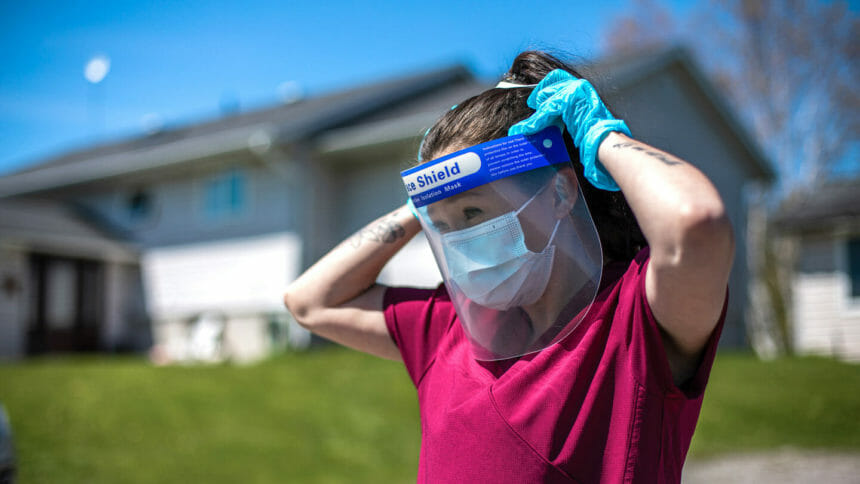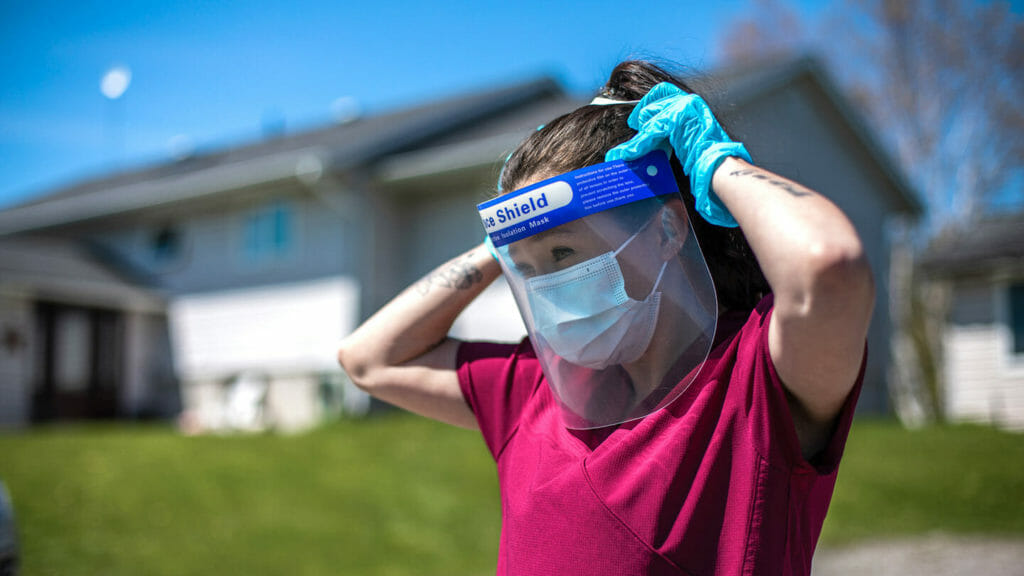

The Centers for Medicare & Medicaid Services must first help the long-term care industry build up its workforce before implementing a national minimum staffing standard for nursing homes, many providers have told the agency in submitted comments.
CMS is in the midst of examining ways to set minimum staffing requirements for nursing homes as part of President Joe Biden’s nursing home reform initiatives.
The agency called on providers to give input on establishing minimum staffing requirements when it issued its proposed 2023 Skilled Nursing Facilities Prospective Payment System in mid-April.
CMS said under the requirements providers will need to “ensure all residents are provided safe, high-quality care, and nursing home workers have the support they need.”
Providers have until June 10 to submit comments to the agency. The proposed rule already has about 2,960 publicly posted comments just days away from that deadline.
While a vast majority of the comments are focused on proposed pay cuts for skilled nursing facilities, about 30% of them call on CMS to consider current staffing shortages and provide more financial resources to facilities before even considering a minimum staffing standard.
“CMS should support our industry by building the workforce before implementing a national minimum staffing requirement. A strong, adequate workforce supply and necessary funding should be in place first,” wrote Sarah Dujua, director of accounts receivable for Illinois-based Sheridan Healthcare Services, LLC.
“We feel the impact of the ongoing workforce challenges that have continuously worsened since the start of the pandemic,” she added. “Our facility does not spare any effort to recruit new staff, and yet we continue to face challenges. I cannot see that employees will become available and workforce will expand in the near future.”
Not the answer
Staffing has been the most challenging obstacle due to the COVID-19 pandemic and the subsequent federal vaccination requirement, according to Holly Burley, RN, director of nursing for the Ansted Center, a 60-bed facility in Ansted, WV. Burley told CMS the mandate has limited the facility’s applicant pool for vacant positions, which has forced the provider to lean heavily on expensive staffing agencies.
“Mandatory staffing minimums are not the answer, and given the current labor shortage in all industries would only impose additional burden on an already overworked nursing staff,” she commented.
Josh Kidd, human resources center manager for the West Virginia-based Dunbar Center, said any minimum staffing mandate should be “accompanied by adequate funding as well as solutions that incentivize individuals to work in long-term care, and more specifically, our facilities.”
“Mandated staffing ratios by job position are not the answer as we have seen challenges with this policy in states around the country. Reporting, associated with any increase in staffing, should NOT be unreasonably burdensome and penalties and enforcement should be reasonably related to the goals of improving care,” he told CMS.
Kidd added that a federal minimum staffing level for SNFs would be difficult or impossible for many facilities to meet at this time given the current labor shortages, especially in the healthcare space.
“Additionally, increased staffing requirements would further add to labor costs and healthcare worker burnout at a time when costs are high and staff is harder to come by,” he said.





